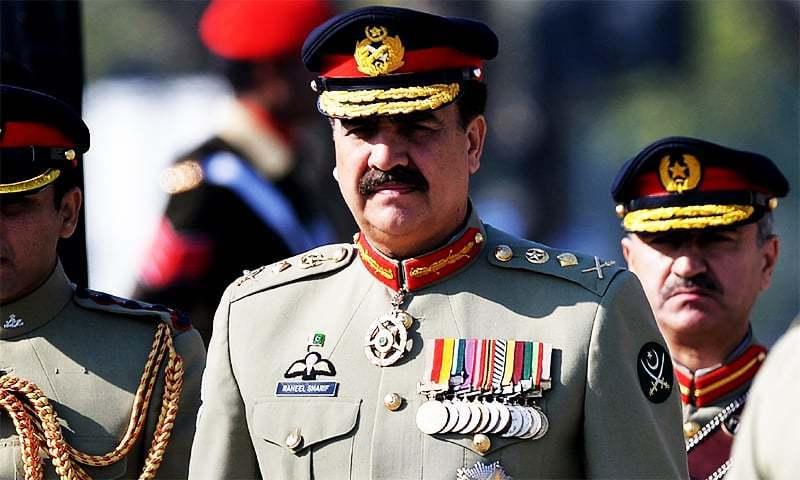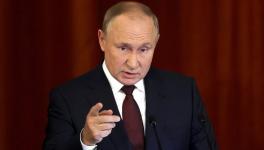Pakistan: Gen. Sharif's New Job

THE former Pakistan army chief, Gen. Raheel Sharif did not have to wait long for his next job. The Saudi Arabian government selected him as the head of a so-called Islamic army that has been in the works for some time now. It is a proposed “counter terrorism” alliance of around 39 Sunni states funded mainly by the Saudi monarchy and the rich Gulf emirates. The headquarters of the proposed military alliance will be based in the Saudi capital, Riyadh. The Saudi government had announced plans for its creation in December 2015 as it embarked on a fratricidal war against neighbouring Yemen. The stated aim of the “Islamic army”, which the regional media has dubbed as the “Muslim NATO” is to fight extremism and terrorism in the region and the Horn of Africa. At the moment, the Saudi led alliance is fighting a sectarian war in Yemen.
Among the countries listed as members of the military alliance are Egypt, Turkey and Pakistan, all having big and powerful armed forces. Even Nigeria, which is a secular republic, with a population almost evenly divided between Muslims and Christians, has pledged support for the Saudi led alliance. President Muhammadu Buhari, had made the commitment during an official visit to Saudi Arabia two years ago. His decision, taken without consulting the country's law makers or even his own cabinet colleagues, had taken his countrymen by surprise. “We are part of it because we have got terrorists in Nigeria who claim that they are Islamic. So, if there is an Islamic coalition to fight terrorism, Nigeria will be part of it because we are victims of Islamic terrorism”, the Nigerian president had argued at the time. The Nigerian government has been noticeably silent on the issue since then, preoccupied as it is with the Boko Haram and a nascent secessionist movement in the South which wants to carve out a Christian state.
Some other governments in fact expressed surprise when their names figured in the initial list of military partners that was put out by Riyadh. Even Pakistan refused to send troops to Yemen despite the Saudi government announcing that Islamabad was part of the Saudi led coalition waging war against a fellow Muslim nation. Good sense had seemingly prevailed over the Nawaz Sharif government at the time. In retrospect, it was a deft and courageous move, given the fact that the war in Yemen shows no signs of ending and has led to the biggest humanitarian crisis, even bigger than that afflicting Syria. Islamabad has however committed more than a thousand ground troops to train the Saudi army inside Saudi Arabia but near the theatre of war in Yemen. The Pakistani army has helped Saudi Arabia and Bahrain maintain internal security and train their armies for a long time.
The Pakistani parliament had voted unanimously against joining the Saudi led military campaign in Yemen in 2015. The UAE foreign minister, Anwar Gargash had openly criticised Islamabad's decision at the time saying that despite the Gulf countries helping Pakistan economically in many ways, Pakistan was not reciprocating to their requests for military help. A minor diplomatic spat had ensued between Abu Dhabi and Islamabad after the statement of Dargash. One immediate gainer of the diplomatic clash between Abu Dhabi and Islamabad was New Delhi. The UAE has significantly upgraded its relationship with India and has pledged billions of dollars in direct investments and infrastructural projects. The Crown Prince of Abu Dhabi, Sheikh Mohammed bin Zayed al Nahyan was the chief guest at this year's Republic Day Parade in Delhi. Saudi Arabia too has further strengthened relations with India seemingly in retaliation for Islamabad's rebuff on the request for ground troops in Yemen.
The Pakistani government gave the impression initially that Gen. Sharif had not kept it in the loop while accepting the Saudi offer to lead the proposed Islamic force immediately after his retirement from the armed forces. Now the government says that it has allowed the retired army chief of staff to take over the job as the Saudi King had personally requested for the favor. An exception was also made specifically in the case of the retired army chief despite the existence of a government law which prohibits senior Pakistani army officials from accepting foreign assignments for a period of two years after retirement.
Pakistan's civilian leadership, despite the close ties with the Saudi royalty, were well aware that getting unnecessarily involved in the war in Yemen having sectarian overtones would be counterproductive in the long run. As it is, the sectarian divide within Pakistan itself seems to be widening by the day. Besides, the country shares a long border with Shia majority Iran. The Saudis and their conservative allies now consider Iran as the enemy. That may be one reason why Oman is the only Gulf Emirate that has refused to sign up with the proposed Saudi led military alliance along with Iraq and Syria. At the recent Arab League summit in Jordan, a resolution was passed condemning “foreign interference” in the affairs of the states in the region. They were not referring to the United States or a European power, but to Iran though the country was not explicitly named. Iran's foreign ministry spokesman, Bahram Qassemi, reacted to the Arab League resolution by saying that the grouping instead of paying attention “to core problems facing the region and the Muslim world, mistake enemies for friends despite all the experiences of the past. ”
There has been widespread criticism within Pakistan after the government formally announced in parliament in the last week of March that it had given the green signal to Gen. Sharif to take up his new post. The diplomatic and economic gains that India was perceived to have achieved with Saudi Arabia and the UAE could have been an important factor influencing the decision of the Sharif government. The Pakistani government's decision came despite the country's parliament having unanimously voted to keep its troops out of the war in Yemen. The parliament had also adopted a resolution proposing that Pakistan “should maintain neutrality” in the conflict in Yemen.
The defense minister, Khwaja Asif, said that the decision to give the go ahead to Gen. Sharif was an “administrative one” and claimed that it had nothing to do with the conflict in Yemen. Pakistan's national security adviser, Retd. Gen. Nasser Janjua, who is close to the Pakistani military establishment, has justified the government's decision. He said that the appointment of the former Pakistan army chief would provide a great opportunity for the country to work for a “Muslim Ummah”. He also dismissed the claim that the move would anger Iran. With Gen. Sharif in charge of a coalition of Islamic forces, Islamabad may find it difficult to ignore requests for the dispatch of its troops to Saudi instigated wars in fellow Muslim countries.
The opposition has said that no decision can be taken without the consent of parliament. The Pakistan Tehrik-i-Insaf Party (PTI) led by Imran Khan along with the main opposition party, the Pakistan Peoples Party (PPP) has vociferously opposed the move.
Iran has openly criticised the Saudi initiative which is obviously aimed against the country's interests. The decision of the Pakistani government to allow Gen. Sharif to lead the Saudi led military grouping was conveyed to Teheran before the official announcement was made. Prime Minister Nawaz Sharif had dispatched his adviser on foreign affairs, Sartaj Aziz to the Iranian capital in February to acquaint the government there about its decision.
Gen. Sharif is meanwhile claiming that he will be the sole authority calling the shots as the military head of the coalition. He has said that he will try and persuade Iran also to join the grouping. The General insisted that the military alliance was solely aimed at combating Islamic terrorism. The head of the Iranian parliament's committee on foreign policy and security, Allouddin Bourourjerdi, who was on a visit to Islamabad in January this year, had told the Pakistani media that the aim of the Saudi led military alliance was “only meant to kill innocent people” in Yemen. “Therefore no one would like to be part of such a coalition”, he said. Iran's ambassador to Pakistan, Mehdi Hunar Dost, has cautioned that the new developments would hamper bilateral relations between the two countries.
The leaders of Pakistan Shia community have also criticised the decision. The PTI spokesman, Fawwad Chaudhry said that his party would forcefully raise the issue of Gen. Sharif's appointment by stealth in the country's parliament. The spokesman said that the Saudi led military alliance was obviously formed to counter Iran and would further widen the existing divide between the Sunni and Shia communities in Pakistan. He reminded the government that it had given an undertaking to remain neutral in the conflicts raging in West Asia that not only involve Muslim nations but also big powers like the United States and Russia. The PPP's secretary general, Farhatullah Babbar, said that the government should have informed parliament before taking the decision. The Nawaz Sharif government is however continuing to claim that there has been no change in policy and that Islamabad under no circumstances will dispatch troops to any other Muslim country.
Disclaimer: The views expressed here are the author's personal views, and do not necessarily represent the views of Newsclick.
Get the latest reports & analysis with people's perspective on Protests, movements & deep analytical videos, discussions of the current affairs in your Telegram app. Subscribe to NewsClick's Telegram channel & get Real-Time updates on stories, as they get published on our website.
























